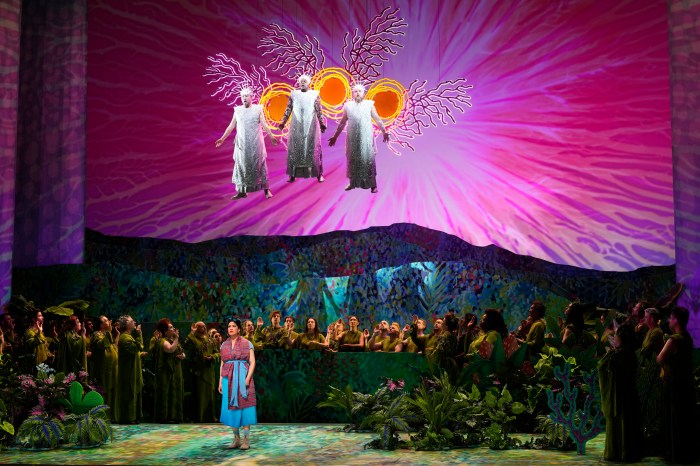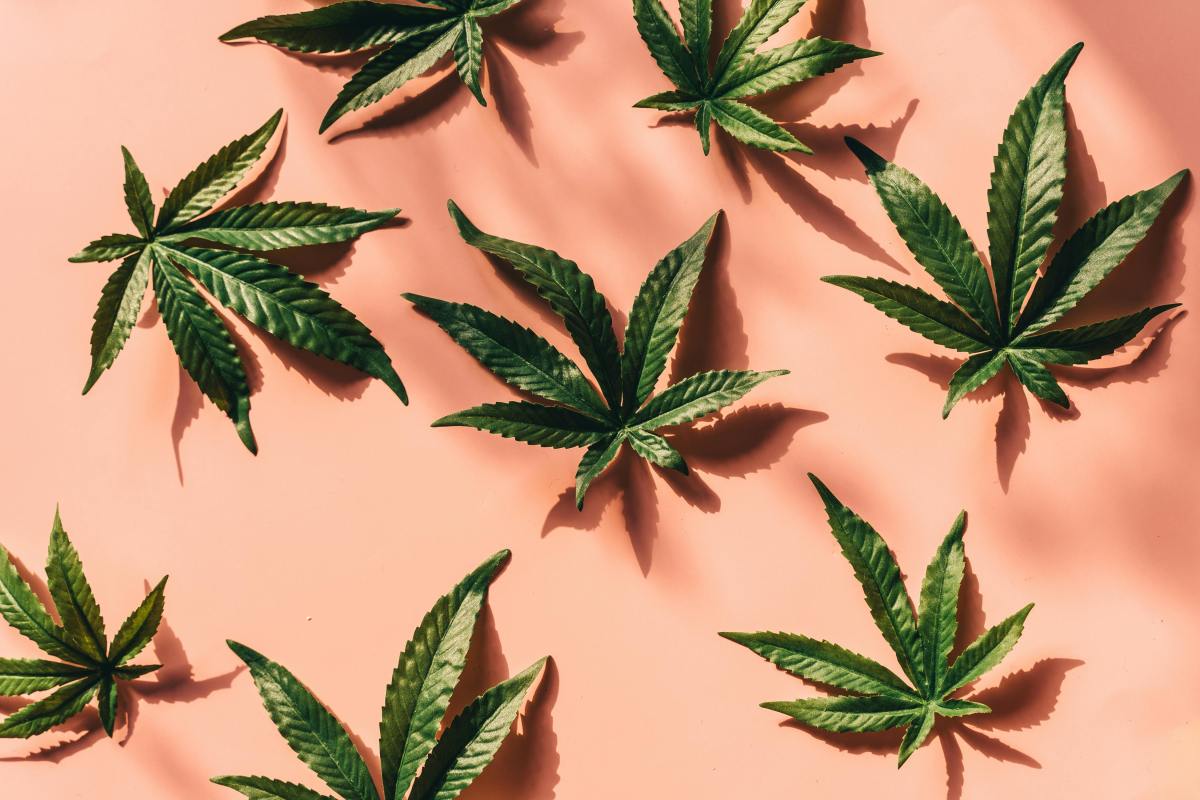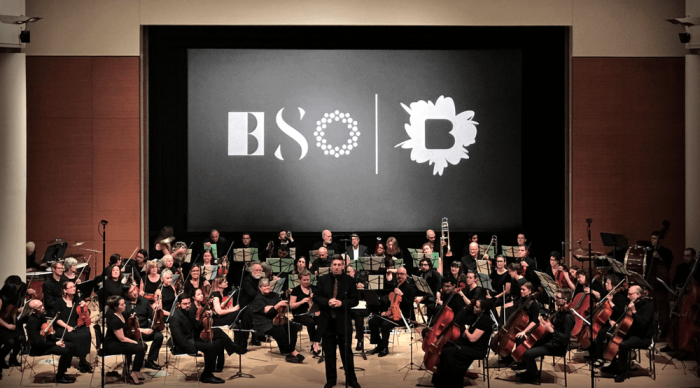Drew Michael nearly fades into the blackness in his self-titled HBO stand-up special. But that might just be entirely the point.
“I try to think about why I am the way that I am. I’m just a guarded person. I’ve got a lot of walls here. I try to think about why that is. What made me that way?” he opens the 50-minute special.
Unlike that of other comics dominating the scene today with live shows transcending onto your television screens, Michael takes a step back and removes all the frills, and the spotlights.
Standing in front of a dark screen, the Brooklyn-based comic addresses the camera straight on, without an audience. He’s often wandering out of the shot and stepping close enough to the lens to force your mind to focus on the words that flow out of his mouth at rapid speed.
“With the elimination of the audience, you’re not being told when each part is coming. There’s no audio cue, and I’m not giving you any, you know what I mean?” says Michael, whose comedy resume includes “Saturday Night Live” (2016-2017).
His stream of consciousness stand-up show breaks all the rules. It leaves you feeling as if you’ve stepped into a one-on-one therapy session, tapped into the line of a couple’s personal phone conversation, and walked onto the stage of an NYC club — all while leaning back into your couch.
“You have to make sense of it yourself. You have to figure out what’s going on and some people won’t ever get it, but some people will lock into it,” he explains, or tries to. “I’m trying to figure out a way to articulate this idea . . . but we did our job, we put it out there (in this format) and now it’s up to you to react to it in any way you see fit.”
Below, Michael opens up about his unconventional approach to the comedy special, which jumps from his relationship woes to his opinions on life (and death) and experience dealing with hearing loss at three years old.
“Drew Michael” airs Saturday at 10 p.m. on HBO.
What makes your stand-up special so unconventional and different from what we’ve seen?
Frankly, I don’t know if that’s even up to me to decide. There’s obviously sort of a material difference. We didn’t shoot it at a live show. We shot it on a soundstage as opposed to a concert or club venue. It was just a camera turned on me, you know, using various shots and lighting cues and close-ups to get a different feel that we thought was right for not only me, how I am, but the kind of things I talk about. But also, what the theme of this special is, staying true to the intention of the material and the content.
Your stream-of-consciousness doesn’t deliver obvious punchlines or cues, so it feels as if you’re not pulling for laughs.
I think that’s one of the effects of the style of delivery I have and the way we shot and presented this . . . We kind of did our job, like we put it out there, now it’s up to you to react to it in any way you see fit. You know what I mean? It really is like, we made this thing and now the other end of the conversation hasn’t happened yet. And so that happens the moment you watch it.
Stand-up comedians often feed and develop the joke off the vibe of the audience, though. Did shooting this in a soundstage alone (with director Jerrod Carmichael) create any challenges for you in terms of delivery?
It was definitely different. I sort of had to trust the work that I had put in and trust myself and my own instincts, also trust the people around me, my director and producer, etc., to capture it in the way it reads on film . . . This was something that was from the start designed to be watched at home, on-screen, rather than trying to adapt or capture a performance.
Your words flow one into another, as do your jokes. Did you map out exactly where you’d take this special topic wise or did it evolve in the moment?
It’s a mix. I mean, this material I worked out over about a year and a half, two years. I was touring and stopping in New York and on the road, headlining clubs. And so, this sort of speaks to the stand-up process in general, but a lot of times you have an idea and flesh it out onstage. Sometimes the (idea) comes fully formed, sometimes kind of close, then I’ll take it out on stage and feel it out to get it right. And then sometimes, in those moments, something will happen and I’ll go off on something, like “Oh, that’s cool. We can use that.” Sometimes that becomes the bit. It’s really just one kind of long plant the roots, let’s see what grows and sometimes you just need the fruit, you don’t need the plant anymore.

















